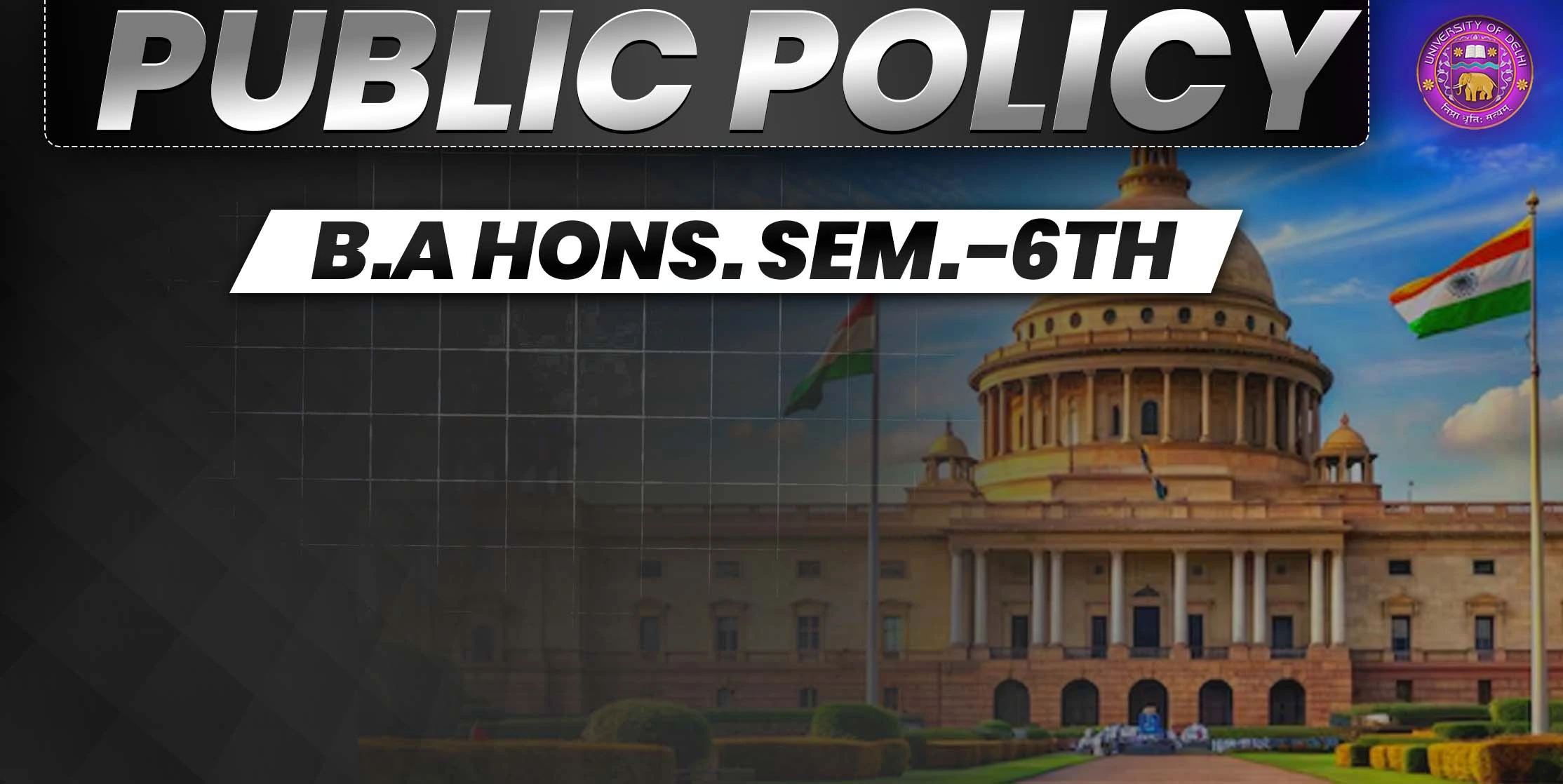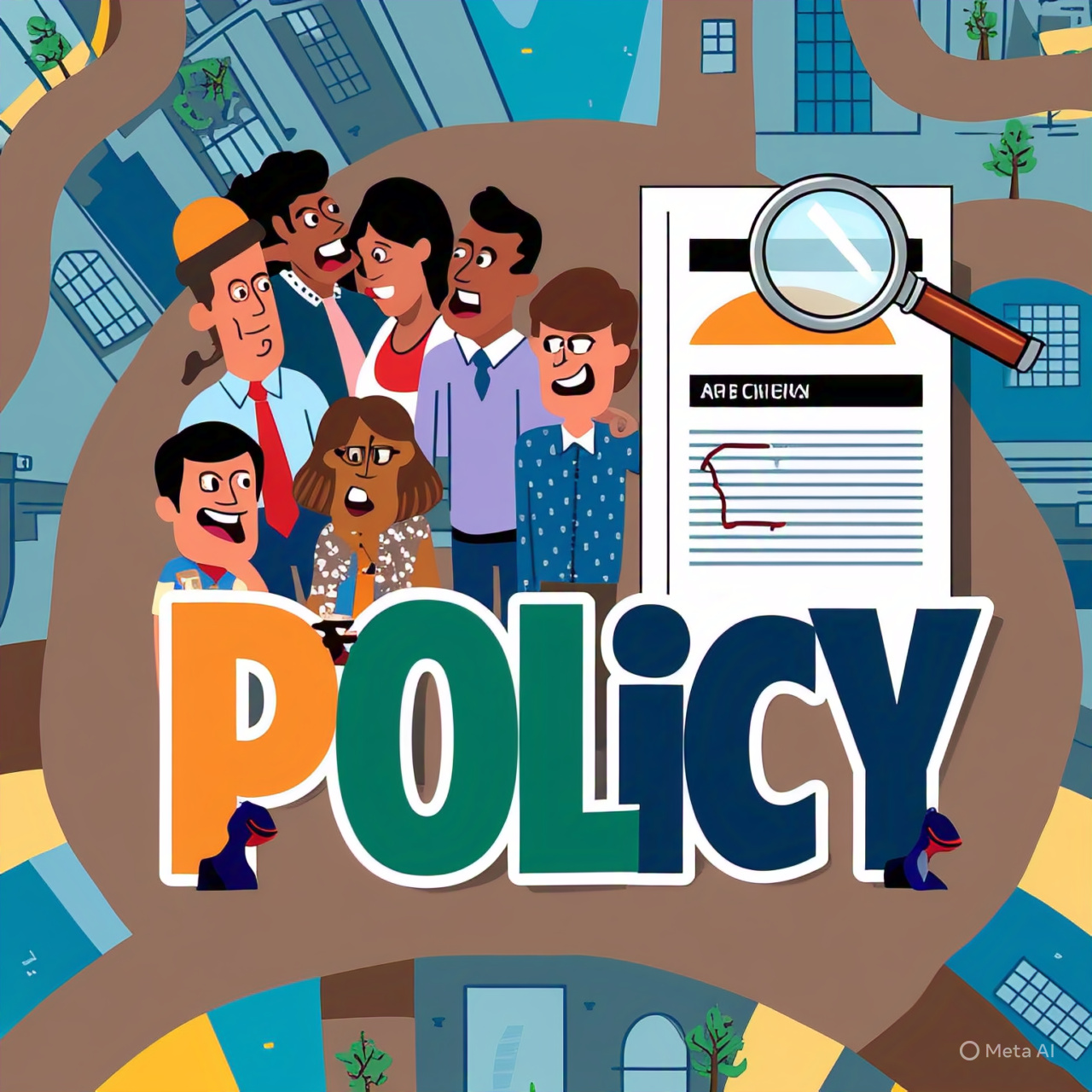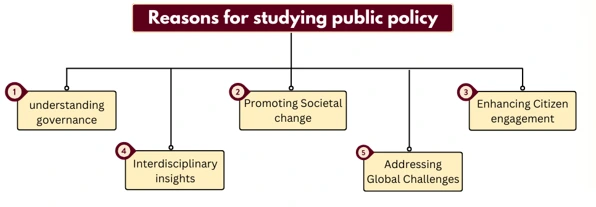
Get in Touch
We will get back to you within 24 hours.
Welcome to MVS Blog

Answer - Introduction

The term 'Public Policy' is made up of two words—'Public' means "the people" and 'Policy' means "a rule or a plan". The idea of public policy started in the late 19th century with Woodrow Wilson’s essay called "The Study of Administration". Later, Harold Lasswell developed it into a new field of study, which he called policy science. Over time, subjects like sociology and economics became part of it. Important values like people's participation, transparency, and accountability were also added. Because of all these, public policy became a strong and important area of study.
A simple Definition of Public Policy :
Public Policy refers to a governmental process through which rules, laws, decisions, and programs are created to address societal problems, promote public welfare, and achieve social, economic, and political objectives.
Views of different thinkers on public policy:
Thomas Dye gave one of the most famous, short, and clear definitions: "Public policy is whatever the government chooses to do or not to do."
According to Jenkins, "Public policy is not just a single decision, but a series of decisions and a continuous (dynamic) process."
The study of public policy is important for several reasons -
Public policy is an important area that deeply affects how society works. It includes the rules and actions made by the government to solve issues like health, education, environment, and economic development. Understanding public policy is important because it influences governance, helps bring change in society, and gives citizens a chance to take part in the policy-making process.

1. Understanding Governance -
Studying public policy helps us understand how the government makes decisions, creates plans, and implements them. It gives us deep knowledge about the structure, working style, and processes of the governance system. This study also highlights transparency, responsibility, and accountability in administration. It helps citizens know how policies are made and how they affect society. This makes democracy stronger.
2. Promoting Societal Change -
Public policy is a powerful tool to bring positive changes in society. By studying it, we understand how the government makes plans to improve areas like education, health, jobs, and the environment. Public policy helps reduce social inequalities, empower disadvantaged groups, and build a fair society. It guides the path for inclusive growth and social improvement. That’s why studying public policy is important for social progress.
3. Enhancing Citizen Engagement -

Knowledge of public policy makes citizens aware and empowered, so they can take part in making and reviewing policies. When people understand how policies are made, they can share their ideas, suggestions, and concerns on the right platforms. This creates public pressure on the government, leading to decisions that benefit the people. Such participation strengthens democracy and ensures transparency in governance.
4. Interdisciplinary Insights -
The study of public policy combines many subjects like politics, economics, sociology, law, and administration. This helps in understanding problems from different angles and finding balanced solutions. Such insight makes policy-making richer, deeper, and more practical. Through this study, students learn to think from any perspectives, not just one direction, which is very important in today’s complex society.
5. Addressing Global Challenges -
In today’s world, problems like climate change, pandemics, terrorism, and global inequality go beyond borders. The study of public policy helps find ways to solve these international issues. It gives policymakers the ability to make decisions with shared strategies, cooperation, and global thinking. Through policy studies, we learn how to see local problems in a global context and how to work together to solve them.
Conclusion
In the end, public policy is a way to solve society's problems and achieve good governance. Studying it helps us understand the government, bring social change, and increase citizen participation. It guides how to make policies with a multi-dimensional approach. In today’s time, knowledge of public policy is very important for social development and the democratic process.
0 Response